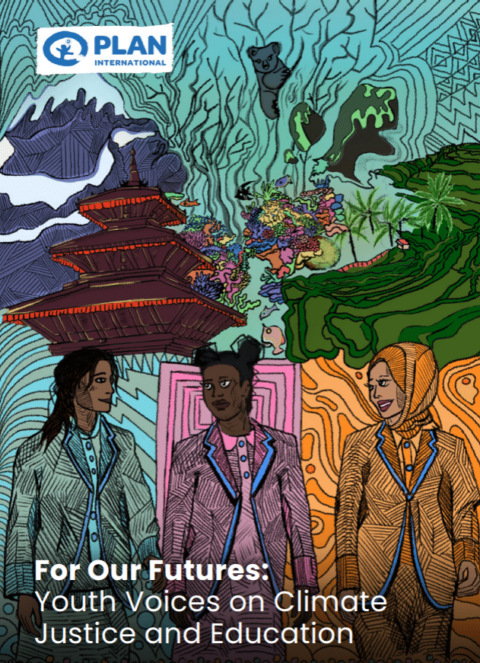From November 30, world leaders, ministers and negotiators will gather at the global United Nations Climate Change Conference, COP 28, to agree on how to address climate change.
Youth activists from Plan International Australia will be there, calling on world leaders, including our Environment Minister Chris Bowen, to invest in a global loss and damage fund that addresses the disproportionate impacts of climate change on children and girls.
The climate crisis is not gender neutral, impacting girls first and worst, particularly those in low-income countries where communities are experiencing the most severe impacts of the climate crisis daily.
Left unchecked, these crises will escalate to catastrophe.
It is unacceptable for countries who have contributed least to climate change to bear the brunt of climate impacts, including the loss of life, land and culture, as well as damage to schools, homes, hospitals and infrastructure.
Climate justice means that girls can go to school, be safe, live with dignity, and decide their own futures. Will you stand with young people in calling on our Environment Minister, Chris Bowen, to invest in a global loss and damage fund?
What is loss and damage?
Loss and damage refer to the destructive impacts of climate change that cannot be avoided and go beyond what people and communities can adapt to. It can also refer to a community’s lack of access to funds or resources in a community to deal with loss and damage.
Loss refers to consequences that are irreparable, such as loss of life, biodiversity, cultural heritage, and Indigenous knowledge. Damage speaks to the consequences that can either be restored or repaired – for example, houses, schools, hospitals, roads, and bridges.

Our research
For Our Futures: Youth Voices on Climate Justice and Education
The climate crisis is not gender neutral. It is impacting girls first and worst, particularly in the poorest countries which are the least responsible for climate change. Internationally, there is a growing body of evidence around how climate change is impacting girls and their education. In the next two years, it is predicted that more than 12.5 million girls may be prevented from completing their schooling each year, because of climate change. However, investing in girls’ education is one of the most powerful, and often overlooked, solutions to improving a country’s climate resilience.
For Our Futures: Youth Voices on Climate Justice and Education engaged 30 young change makers across Australia, Indonesia and Nepal using a Feminist Participatory Action Approach to co-research the impact of climate change on girls’ right to an education. The approach included training and equipping young people with the skills to advocate for change. This took place over six online cross-country workshops and ongoing in-country engagement with youth activists.
Want to learn more? Read our latest climate change report.
